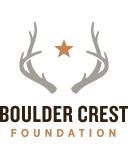Trauma
Is It Really OK to Not Be OK?
Our words can lead to strength in others or promote scars that prevent growth.
Posted June 6, 2024 Reviewed by Gary Drevitch

Our military is adopting language that may be harmful to the success of our warfighters and our nation. This language — while it might be appropriate in a therapist’s office — does not belong in the everyday vocabulary and collective mentality of the armed forces.
Of course, we all struggle. I am the co-author of a book called Struggle Well: Thriving in the Aftermath of Trauma and have helped train over 100,000 struggling members of the active duty, veteran, and first-responder communities around the world in a training program we call Struggle Well. And what we teach is that it’s OK to not be OK—IF you are doing something to improve your situation.
I spent 21 years in the US Navy’s Special Operations bomb squad as a bomb disposal specialist—what some people call the most dangerous job in the world. I say "some people," because the men and women who do the job respect the dangers and overcome fear through rigorous training. In high-stress training for high-stakes operations, it is critical to create habits that ensure that mental and muscle memory come naturally when the skills and reflexes are needed.
When training is incomplete or unrealistic it creates bad habits and detrimental reflexes, or what we call “training scars.” These “scars” are also created by imprecise language and oversimplified explanations of complicated issues. For example, if you neglect to inform a service member that they must be actively searching for ways to improve their situation in life in order for the cliché of “It’s OK to not be OK” to be accurate, you have created a training scar that may convince people that a non-OK way of life is acceptable—and the military cannot afford that.
This week, I have several friends in Normandy, France celebrating the 80th anniversary of D-Day. They send me pictures daily of the veterans they are meeting, and each picture is more incredible than the one before. These pictures made me reflect on a question: Where would the US be if that generation thought OK was good enough?
We need to expect more from our warfighters than to just be “OK." The idea that being OK is a goal encourages mediocrity and complacency. If we repeat this phrase enough, it will reinforce bad habits and prevent our warfighters from being the best that they can be.
There are many reasons why this statement and the ideas inherent to it are so problematic:
The Potential for Growth and Improvement
- Complacency. When people settle for "OK," they may become complacent and miss opportunities for personal and professional growth. Striving for excellence and setting Specific, Measurable, Achievable, Relevant, and Time-bound (SMART) goals centered around your mind, body, financial, and spiritual wellness leads to more significant achievements and fulfillment.
- Skill Development. Constantly pushing yourself to be better leads to the acquisition of new skills and knowledge to becoming more valuable in various aspects of life.
Mental and Emotional Well-being
- A Lack of Passion. Being “OK” can indicate a lack of enthusiasm for what you are doing. Passion and enthusiasm greatly enhance your quality of life and satisfaction.
- Avoiding Stagnation. Being just “OK” might mask underlying issues regarding you mental and emotional health. Addressing these issues, with a view toward learning and growing from them, leads to a more vibrant and fulfilling life.
Societal and Community Contributions
- Impact and Influence. When you strive for being more than “OK,” you can make significant contributions to society through leadership, service to others, and innovation that will have lasting positive effects on your community.
- Role Models. Humans become the average of the 3-5 people they spend the most time with. It is important to surround yourself with great role models that will lift you up and be there for you in the hard times. Make sure you ask your mentors for open and honest feedback.
Personal Fulfillment and Happiness
- Achieving Your Dreams. Settling for “OK” might prevent you from pursuing your dreams and taking the risks required to reach your full potential.
- Sense of Accomplishment. When you set and achieve big, hairy, audacious goals, it provides you with a sense of pride and accomplishment that merely being “OK” doesn’t.
Mental Toughness and Adaptability
- Overcoming Challenges. In the military, starting with basic training, we all find ways to persevere through the challenges put in front of us. Overcoming any challenge helps build mental toughness, which is critical for navigating life’s ups and downs.
- Preparing for the Future. In a changing world, it is important to continuously improve your situation in life and not settle for "OK." This will better prepare you for future uncertainties and expose you to new opportunities.
Purpose and Meaning
- Finding Purpose. One of my favorite books is Man’s Search for Meaning by Viktor Frankl. He was a Holocaust survivor who endured incredible physical and psychological suffering. However, it was because of his immense struggle that he ultimately found meaning and purpose in his life. Finding meaning and a sense of purpose provides direction and motivation—a true recipe for living a great life.
- Living to Your Full Potential. This involves maximizing your abilities, passions, and opportunities to create a fulfilling and meaningful life. Some key principles for living your full potential include increasing your self-awareness to enhance your character; continuous learning; time management; embracing change; positive relationships; living a healthy lifestyle; and giving back to others.
Within the military — not among mental health professionals — are experts in training under stressful conditions. This training expertise can and should be applied to help those struggling in their day-to-day lives. We all have scars and none of us need more. I believe that life isn’t hard, but it is hard work and if you get up every day and work hard, you will be able to Struggle Well and live a more impactful and satisfying life. Remember, words and stories matter: We can and must do far better than just OK.
Ken Falke is a 21-year Navy Special Operations EOD veteran, philanthropist, and founder and chairman of Boulder Crest Foundation. Boulder Crest is a nonprofit organization focused on the teachings of posttraumatic growth.




